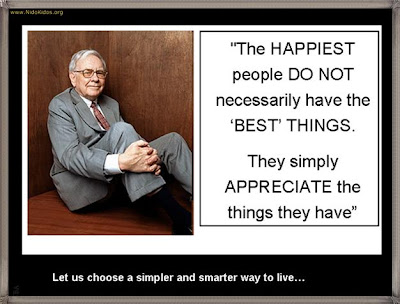During the last two decades, major U.S. and European banks have paid fines to settle charges of, among other things, accounting fraud (Fannie Mae, Freddie Mac), assisting Enron’s fraud (Citigroup, J.P. Morgan), assisting people in tax evasion (UBS), using bribery to sell financial products (J.P. Morgan), money laundering (Citicorp), and fraudulently recommending stocks in exchange for business (10 investment banks in the dotcom era). In paying the fines, none of these banks acknowledged wrongdoing.
Monday, October 18, 2010
Another "Inside Job" Revelation
Business news followers will already be familiar with much of the film's main turf. And, of course, we all now know Alan Greenspan's heinous role in the whole mess. Even close readers may be surprised, however, at some of Ferguson's revelations. I was particularly struck by the complicity of the academic world in providing the intellectual underpinnings for the theories that led us off a cliff (for example: "It's a good idea to deregulate derivatives!")--for money. Larry Summers, Harvard's Martin Feldstein, and Columbia'sGlenn Hubbard come across as particularly culpable.
Friday, October 15, 2010
Intellectual Conflict of Interest
Here is an excerpt from an article by the director of "Inside Job" that throws some light that not all research is done objectively there may be compromises.
Over the past 30 years, the economics discipline has been systematically subverted, in much the same way as American politics - by money, especially from the financial services industry. Many of the most prominent economists in America are now paid to testify in Congress, to serve on boards of directors, testify in antitrust cases and regulatory proceedings, and to give speeches to the companies and industries they study and write about with supposed objectivity. This is not a marginal activity; it is now an industry, run by a half dozen large companies.
Some prominent academics have close ties to financial services yet neither their university employers nor the journals in which they publish require them to disclose their conflicts of interest, their financial positions, or the relationship between their financial interests and the policy positions they take.
It is time to end this. At a minimum, federal law should require public disclosure of all outside income that is in any way related to professors’ publishing and policy advocacy. It may be desirable to go even further, and to limit the total size of outside income that potentially generates conflicts of interest.
Tuesday, October 12, 2010
the justice is “half baked at best,”
An excerpt from Break the Banks
Now we’re witnessing another round of this shameful routine. President Obama and Attorney General Eric Holder Jr. have said they would hold Wall Street accountable for the crash, warning “unscrupulous executives,” in Holder’s words, that “we will investigate you, we will prosecute you, and we will incarcerate you.” But despite fraud on a scale possibly unmatched in history, the Justice Department has not charged a single executive or firm. The Securities and Exchange Commission, meanwhile, has extracted only fines from a handful of big banks. Three of the federal judges who oversaw these cases—none of which included an acknowledgment of guilt—protested from the bench, saying the fines are “not enough to deter anyone from doing anything,” the justice is “half baked at best,” and the banks are getting “a free ride.” (Holder has defended his financial-fraud task force, stressing “the totality” of its efforts, including cases against mortgage fraud and insider trading; SEC chairwoman Mary Schapiro has noted that the bulk of its investigations are “not necessarily” done.)
Wednesday, October 6, 2010
BCG Growth - Share Matrix
An excerpt from Nudge Blog
How would a behavioral economist look at the BCG growth-share matrix? She might start by redrawing the axes and isolating the analysis to business units (or business unit workforce, perhaps). And what axes could be most appropriate? Procrastination and status quo bias.
The dog and star boxes should make sense to readers. In the cash cow category are high status quo bias and low procrastination. In other words, the business unit is working diligently and productively on its key product, while remaining oblivious to forward-thinking innovations. As long as the status quo is working in the marketplace, the unit will survive just fine. Then there is the unit that is not wedded to any status quo, but is stuck in a cycle of “tomorrow we’ll deliver.” Will that delivery ever arrive? Indeed, that’s a question mark.
Thursday, September 23, 2010
Khan Academy
A statement from Khan Academy website.
The Khan Academy is a not-for-profit 501(c)(3) with the mission of providing a world-class education to anyone, anywhere.
We are complementing Salman's ever-growing library with user-paced exercises--developed as an open source project--allowing the Khan Academy to become the free classroom for the World.
Tuesday, September 21, 2010
Friday, August 27, 2010
Change Agent Bumper Stickers
Here are seven "Bumper Stickers" from Rosabeth Moss Kanter, change agent must be aware of these.
- Change is a threat when done to me, but an opportunity when done by me.
- A journey of a thousand miles starts with a single step.
- If you don't know where you're going, any road will take you there.
- Change is a campaign, not a decision.
- When you come to a fork in the road, take it.
- Everything can look like a failure in the middle.
- Be the change you seek to make in the world.
Subscribe to:
Posts (Atom)











